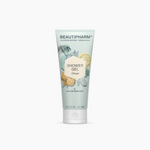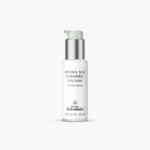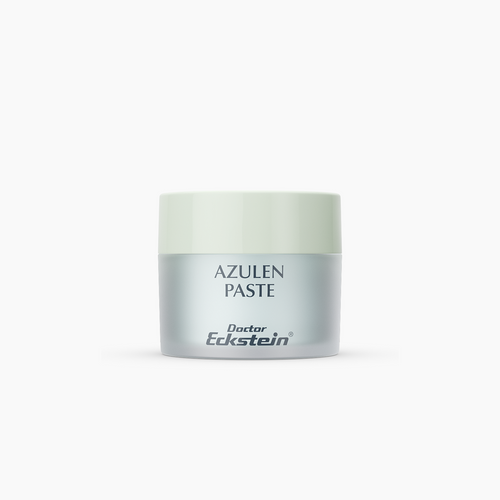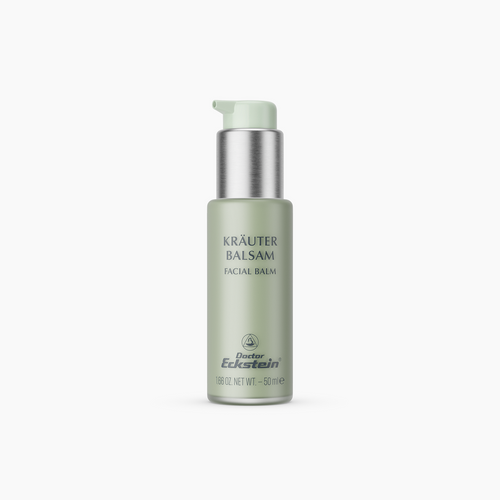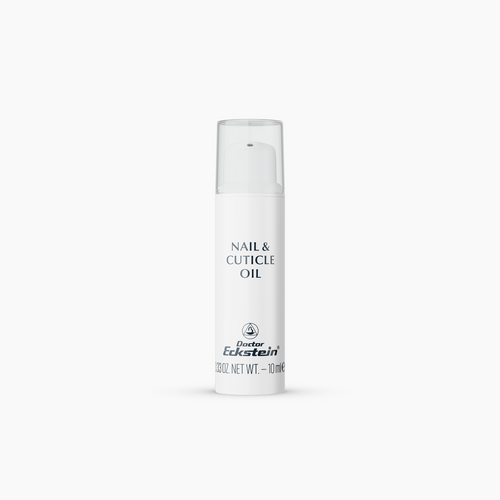If you’re reading this post, you probably already know that sensitive skin does not like surprises.
One wrong product, a sudden change in weather, or an overly enthusiastic cleanse, and it lets you know — fast. Redness, dryness, irritation, and itchiness are all signs that your skin’s defenses are on high alert.
This is not a rare issue. According to the National Library of Medicine, 60 to 70% of women and 50 to 60% of men experience some level of skin sensitivity (NIH).
Unlike other skin types, sensitive skin reacts to things most people never think twice about. Certain ingredients, environmental changes, and even too much water exposure can trigger discomfort.
The key to keeping sensitive skin calm is a careful skincare routine that prioritizes balance, protection, and hydration. When the skin barrier is strong, sensitivity becomes much easier to manage.
Understanding what triggers reactions and knowing which ingredients actually help makes all the difference. With the right approach, even the most sensitive skin can stay resilient, comfortable, and healthy every day.
What Causes Sensitive Skin?
Sensitive skin isn’t just about discomfort. It’s a reaction to both internal and external factors that affect how the skin functions. Some people are born with naturally reactive skin, while others develop delicate skin over time due to environmental or lifestyle influences.
Here’s a look at the causes.
Intrinsic vs. Extrinsic Factors
Sensitive skin can stem from intrinsic factors like genetics or underlying conditions such as eczema, rosacea, or psoriasis. Some people naturally have a weaker skin barrier, making them more prone to irritation.
Extrinsic factors come from the outside. Weather, pollution, sun exposure, and certain skincare products can weaken the skin’s defenses. Over time, these stressors strip away moisture and disrupt the skin barrier, leading to redness, dryness, and reactivity.
The Skin Barrier’s Role in Sensitivity
The skin barrier protects against moisture loss and irritation. When it’s strong, the skin stays balanced. When it’s weakened, potential irritants penetrate more easily, causing inflammation and discomfort.
Over-cleansing, certain exfoliants, and extreme temperatures break down this barrier. Without proper hydration and protection, the skin becomes more reactive over time.
Environmental Triggers That Worsen Sensitivity
Sensitive skin reacts easily to external stressors, making daily protection important.
-
Pollution can settle on the skin, leading to inflammation and irritation.
-
Weather shifts strip moisture. Cold air dries out the skin, while heat can increase oil production and irritation.
-
Sun exposure can weaken the skin barrier and trigger redness, especially without sunscreen.
-
Some skincare products can disrupt the skin’s balance. Certain fragrances, drying alcohols, and strong exfoliants are common culprits.
A routine built around gentle, nourishing ingredients helps protect sensitive skin. Choosing the right products and avoiding unnecessary potential irritants can make all the difference.
Creating a Sensitive Skincare Routine
A consistent, well-balanced routine is the best way to manage sensitive skin. The focus should be on gentle cleansing, deep hydration, and daily protection to keep the skin barrier strong and prevent irritation.
Finding the right sensitive skincare routine might take some trial and error, but simple, targeted steps make all the difference. Here are my top 4 tips::
1. Cleansing: Less Is More
Sensitive skin needs to be cleansed without being stripped of its natural oils. Some cleansers contain too many surfactants that strip the skin of its natural moisture, making irritation worse. A gentle, fragrance-free cleanser removes dirt, oil, and pollutants without disrupting the skin’s balance.
Lukewarm water is best, as hot water can dry out the skin while cold water may not effectively remove impurities. Cleansing once or twice a day is usually enough. Overwashing can weaken the skin’s defenses, leading to more sensitivity over time, because when your skin barrier is in a compromised state even water can further irritate it.
2. Moisturize to Restore the Skin Barrier
Hydration is key for sensitive skin. A rich moisturizer helps reinforce the skin barrier, preventing moisture loss and reducing signs of inflammation.
Ingredients like soy sterols repair and strengthen, hyaluronic acid boosts hydration without clogging pores, and glycerin locks in moisture to keep the skin soft. Applying moisturizer immediately after cleansing helps seal in hydration. For extra protection, a thicker cream at night can support overnight repair.
3. Sun Protection Is Non-Negotiable
UV exposure weakens sensitive skin, making it more prone to redness and irritation. A broad-spectrum sunscreen with SPF 15 or higher is essential every day, even when it’s cloudy.
When outdoors for long periods, seek shade, wear a wide-brimmed hat, and wear lightweight protective clothing to minimize direct sun exposure.
4. Avoiding Over-Exfoliation and Certain Ingredients
Exfoliating helps remove dead skin cells, but sensitive skin can’t tolerate frequent exfoliation. Certain scrubs and acids often do more harm than good. Very gentle exfoliation of oily, sensitive skin once a week is enough. If your skin is very sensitive, I recommend not exfoliating at all, or to have a gentle exfoliation performed by an esthetician.
Sensitive skin can easily react to many things, especially to things that are completely safe and fine for non-sensitive skin. Fragrances, whether synthetic or natural, can trigger irritation, so choose products without added fragrance. Certain alcohols can strip moisture, leading to excess dryness for sensitive skin, so opt for alcohol-free products.
The right routine is about balance, keeping the skin clean, protected, and nourished without overloading it with unnecessary products.
Best Ingredients for Sensitive Skin Types
Sensitive skin needs ingredients that calm irritation, restore moisture, and strengthen the skin barrier. The right formulas keep skin hydrated and resilient without triggering a reaction. Here are three things to look for when choosing a product for sensitive skin:
1. Soothing Ingredients
Chamomile extract helps calm signs of irritation with its anti-inflammatory properties. Along with beta-glucan, bisabolol, allantoin and panthenol which also have soothing effects.
2. Barrier-Repairing Ingredients
A strong barrier helps the skin retain moisture and resist irritation. Soy sterols replenish the lipid layer that keeps hydration locked in. Hyaluronic acid pulls water into the skin, preventing dryness. Glycerin acts as a humectant, keeping skin soft and smooth.
3. Antioxidants
Antioxidants, such as troxerutin, help protect sensitive skin from irritation caused by pollution and environmental stress.
The right ingredients can make all the difference. When skin gets what it needs, it looks and feels healthier, with less redness, dryness, and irritation.
Choosing the Best Skincare for Sensitive Skin
Many sensitive skin products claim to be gentle, but not all live up to the promise.
In addition to the tips above, look for Dermatologically-tested products, to make sure the finished product doesn't cause irritation. At Doctor Eckstein, for example, we use an independent laboratory, Dermatest, to dermatologically patch tests our products (on humans, not animals) and evaluate them for skin compatibility. For all of our tested products on the market, we have always received their highest rating for skin compatibility, “sehr gut” in German, or “excellent”.
But even with extra dermatological testing, everyone’s skin is different and even gentle formulas can cause reactions. To confirm a product works for you, apply a small amount to the inside of the wrist or behind the ear and wait 24 hours. If there’s no redness or itching, it’s likely safe for your skin.
Winter & Seasonal Skincare for Sensitive Skin
Even individuals that normally don’t have sensitive skin may see their skin act up in the winter. Cold weather and dry indoor air make sensitive skin even more reactive. Low humidity pulls moisture from the skin, while harsh winds and temperature changes weaken the skin barrier. Without the proper care, sensitivity increases, leading to dryness, redness, and irritation.
If this is you, make sure to follow all of the tips above, and you can also use a humidifier indoors to help maintain moisture levels in the air and stop the skin from drying out.
Our Sensitive Balance Collection offers products designed to support sensitive skin, particularly in colder months.
Sensitive Skin Isn’t Hopeless, It’s Just Misunderstood
Skin that reacts easily isn’t doomed—it simply needs the right balance of protection, hydration, and simplicity. The best approach will always be a routine that strengthens rather than strips and soothes rather than overwhelms.
A strong skin barrier is the foundation of healthy, resilient skin. Sensitivity becomes more manageable when supported with gentle and effective ingredients. The goal is not perfect skin. It is skin that feels comfortable, balanced, and at ease.
Doctor Eckstein’s Sensitive Balance line is designed with this in mind. These products respect the skin’s natural defenses and provide the care it actually needs.
If your skin needs a smarter approach, it is worth exploring formulas that work with it, not against it. Check out our products today!
Wishing you happy skin,
Dr. Verena Eckstein (ND) and the Doctor Eckstein Esthetician Team
